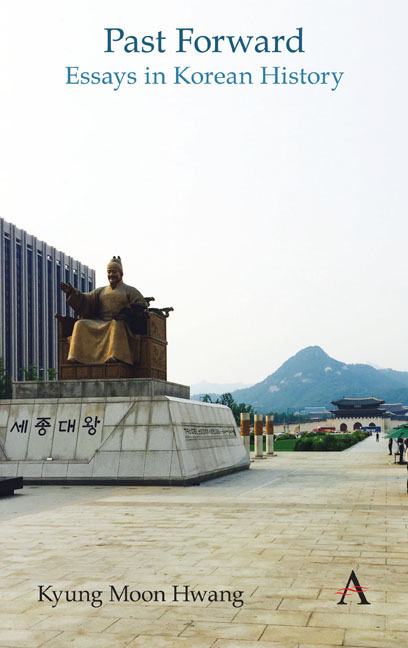Book contents
- Frontmatter
- Contents
- List of Figures
- Foreword
- Chronologies of Korean History
- Themes
- Acknowledgments
- Note on Romanization and Spelling
- Part I Circulating History
- Part II Durable Traditions
- Part III Ancient Remains
- Part IV Dynastic Depths
- Part V Modern Origins
- Part VI Challenges of Nationhood
- Part VII History Makers
- Part VIII External Presences
- Part IX Trials of Modernization
- 62 Summer Symmetries
- 63 The Korean War as a Turning Point
- 64 The Students of April
- 65 The Four Ds of South Korean History
- 66 Two Assassinations
- 67 Roads to Revolution
- 68 Dramatizations of the Gwangju Uprising
- 69 The Great Labor Uprising of 1987
- Part X Gripped by the Past
- Index
68 - Dramatizations of the Gwangju Uprising
from Part IX - Trials of Modernization
- Frontmatter
- Contents
- List of Figures
- Foreword
- Chronologies of Korean History
- Themes
- Acknowledgments
- Note on Romanization and Spelling
- Part I Circulating History
- Part II Durable Traditions
- Part III Ancient Remains
- Part IV Dynastic Depths
- Part V Modern Origins
- Part VI Challenges of Nationhood
- Part VII History Makers
- Part VIII External Presences
- Part IX Trials of Modernization
- 62 Summer Symmetries
- 63 The Korean War as a Turning Point
- 64 The Students of April
- 65 The Four Ds of South Korean History
- 66 Two Assassinations
- 67 Roads to Revolution
- 68 Dramatizations of the Gwangju Uprising
- 69 The Great Labor Uprising of 1987
- Part X Gripped by the Past
- Index
Summary
The Gwangju Uprising May 1980 remains one of the signal moments in South Korean history. Although it ended in a massacre of hundreds, the uprising also sparked a concerted civic movement that eventually overthrew the military dictatorship and instituted democratization in 1987.
A measure of Gwangju's epic scope and standing is the enormous number of academic studies, seminars, testimonies, documentaries, novels and dramatizations in popular culture dedicated to commemorating its historical impact. In reflecting on this event and on the “memory industry” that has developed around it, the following reviews some of the most stimulating cinematic treatments:
Hour Glass (Morae Sigye, 1995). Featuring the first mainstream visualization of the Gwangju Uprising, this television miniseries set records in viewership, coming as it did less than a decade following the political liberalization of 1987. The main characters converge in Gwangju early in the story. Their respective experiences—with one friend sent into the city as a paratrooper and another becoming an eyewitness from the vantage point of the citizenry—would in many ways determine their futures for the rest of the 1980s.
“Hour Glass” explicitly showed the chaotic brutality of the uprising, with ordinary citizens being subjected to ruthless beatings and killings, which nevertheless served not to subdue them but rather to embolden them in defense of their human dignity. This drama also joined, in the mid-1990s, a broader reckoning of the country's authoritarian past, including the public trial (and conviction) of former presidents Chun Doo-hwan and Roh Tae-woo, the duo in command of the military at the time of the Gwangju Uprising.
A Petal (Kkonnip, 1996). Based on Choe Yun's extraordinary short story, “A Petal,” like “Hour Glass,” depicts the violence viscerally, in fact even more so, through the story of a teenage girl who wanders around like a zombie following her traumatic experience of Gwangju, when she lost her mother and her sanity. And like “Hour Glass,” the lingering effects of Gwangju mark the depth of destruction visited not just upon the immediate victims but upon larger society.
Peppermint Candy (Bakha Satang, 1999). As with the first two works, “Peppermint Candy” anchors a person's life in the formative experience of Gwangju.
- Type
- Chapter
- Information
- Past ForwardEssays in Korean History, pp. 196 - 198Publisher: Anthem PressPrint publication year: 2019



